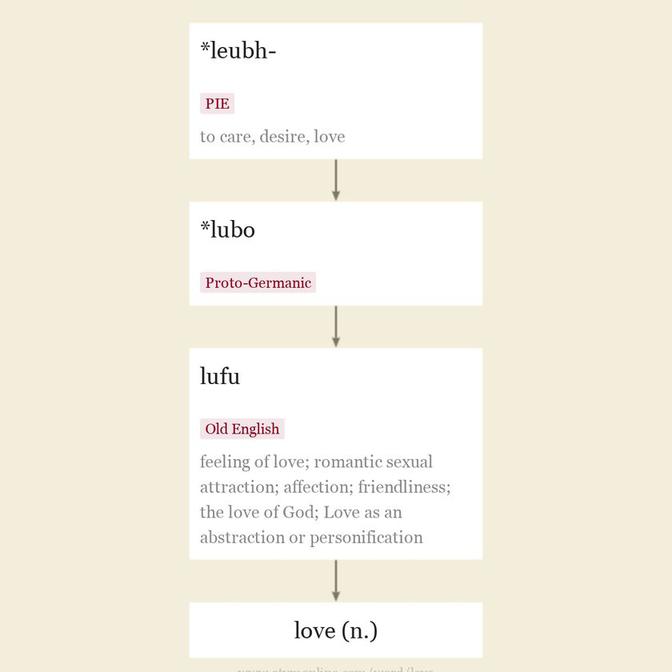lovesick adj.
also love-sick, "
Entries linking to lovesick

Old English lufu "
The weakened sense "
To fall in love is attested from early 15c.; to be in love with (someone) is from c. 1500. To make love is from 1570s in the sense "
"Even now," she thought, "almost no one remembers Esteban and Pepita but myself. Camilla alone remembers her Uncle Pio and her son; this woman, her mother. But soon we shall die and all memory of those five will have left the earth, and we ourselves shall be loved for a while and forgotten. But the love will have been enough; all those impulses of love return the love that made them. Even memory is not necessary for love. There is a land of the living and a land of the dead and the bridge is love, the only survival, the only meaning." [Thornton Wilder, "Bridge of San Luis Rey," 1927]
Middle English sik, from Old English seoc "
It is the general Germanic word (compare Old Norse sjukr, Danish syg, Old Saxon siok, Old Frisian siak, Middle Dutch siec, Dutch ziek, Old High German sioh, Gothic siuks "
The restricted meaning of English sick, "
The modern colloquial meaning "
updated on August 31, 2016